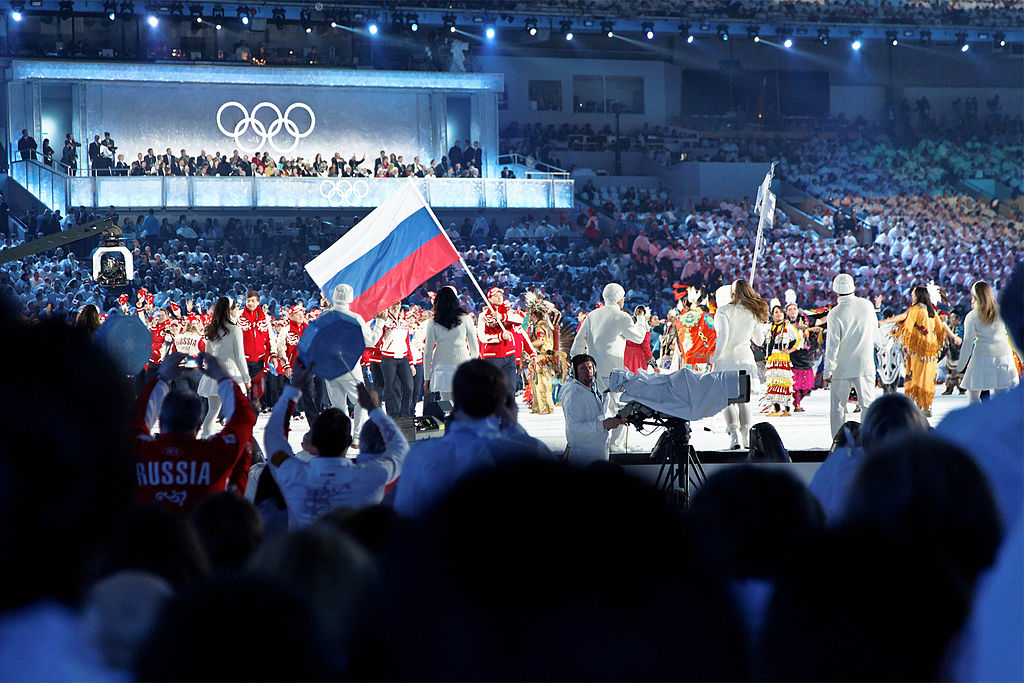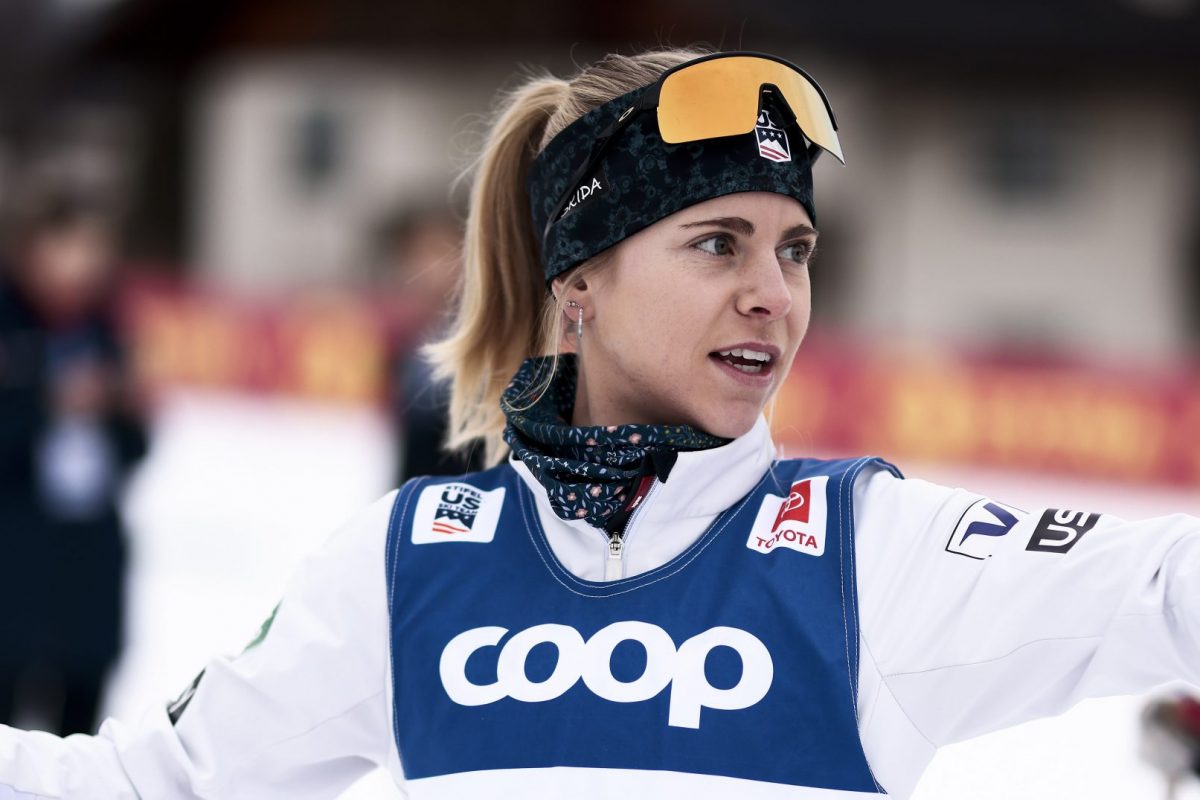
In Lausanne, Switzerland, the International Olympic Committee (IOC) Executive Board voted to allow Russian athletes at the 2018 Olympics in PyeongChang, South Korea, but only to compete as neutral athletes. That means no national anthem, no Russia-emblazoned uniforms, and no Russian flags to be raised should the athletes win medals. Instead, the Olympic anthem would be played.
The decision, available in full here, follows years of investigation into a state-organized doping program at the 2014 Olympics in Sochi, Russia, where Russia broke numerous international anti-doping statutes.
As evidence towards its decision, the IOC Executive Board relied on two reports compiled by IOC commissions. The results from one of the investigations, the Oswald Commission, have already been used to disqualify 25 athletes from the 2014 Olympics and all future Olympic Games. That included eight Russian cross-country skiers (Alexander Legkov, Evgeny Belov, Alexey Petukhov, Maxim Vylegzhanin, Julia Ivanova, Evgenia Shapovalova, Anastasia Dotsenko, and Julia Tchekaleva) and three biathletes (Olga Vilukhina, Yana Romanova, and Olga Zaitseva); all of the biathletes had already retired, but many of the skiers were hoping to compete in PyeongChang.
The report of the Schmid Commission, which was delivered to Executive Board members at 1:30 p.m. today, investigated not individual athletes but the systematic nature of the doping program. Board members had only a short “reading period” to get familiar with the contents of the report, and the Russian delegation at the meetings to argue for their continued participation allegedly were only given 20 minutes to look at the report before making their presentation.
Other Recent Developments
- Norwegian broadcaster NRK reported that the current president of the Russian Biathlon Union, Aleksandr Kravtsov, was personally involved in the doping scandal. At the 2014 Olympics, Kravtsov was the diplomatic head of the Russian team. “From time to time I talked with Aleksandr Kravtsov about the use of performance-enhancing drugs in general, and about the Sochi plan in particular,” whistleblower Grigory Rodchenkov told NRK.
- Rodchenkov told the New York Times that he thought being forced to compete under a neutral flag was a fair solution to the scandal. “Innocent athletes should not be prevented from participating,” he said.
- In the same piece, Rodchenkov said that the deputy sports minister Yuri Nagornykh “asked him to ‘make the sample dirty’ to disqualify [Ukrainian biathlete Vita] Semerenko. Dr. Rodchenkov did not comply, he said, convincing the minister that a retest of the drug sample would show the drugs had been spiked into the sample rather than passed through a human body.”
- Swedish IOC member Gunilla Lindberg told Swedish radio that she had not watched the documentary Icarus, about Rodchenkov and the Russian doping scandal, saying that she “had been traveling a lot.” As of September, IOC President Thomas Bach also had not watched it either.
“The conclusions of the Schmid Report, on both factual and legal aspects, confirmed ‘the systemic manipulation of the anti-doping rules and system in Russia, through the Disappearing Positive Methodology and during the Olympic Winter Games Sochi 2014, as well as the various levels of administrative, legal and contractual responsibility, resulting from the failure to respect the respective obligations of the various entities involved’,” the decision noted.
The Schmid Report can be read in full here.
The IOC is suspending the Russian Olympic Committee immediately, as well as its president, Alexander Zhukov, from his IOC Member status.
Also included in the sanctions is a fine of $15 million – which will go towards the IOC’s pet project the Independent Testing Authority, an anti-doping agency – as well as the payment for the costs of the IOC’s investigations into the scandal.
But the punishment of the most interest is undoubtedly that which directly, rather than indirectly, affects athletes and their participation in the upcoming Olympics in February.
A country has never been disqualified from the Olympics for doping before, although countries have been suspended for other reasons. In those cases as well, their athletes have been able to compete under the Olympic flag.
Previously, the participation of Russian athletes at the 2016 Summer Olympics had been handled by individual sports federations. The International Weightlifting Federation completely banned Russia from those Games, while the track and field federation allowed a select few athletes to compete under a neutral flag. In other sports, some athletes were ruled out but others were allowed to compete as Russians.
This is notably different, as it applies across all sports. The deal is believed to have been agreed upon before today’s meetings, as such a short time was given for the Board to read the Schmid report’s findings and Inside The Games reported that the IOC had already contacted Nike to produce “neutral” uniforms for the Russian athletes.
There had been discussion of whether Russia would boycott the Olympics under these conditions. A Kremlin spokesman said yesterday that a boycott was not being discussed, but there is popular support for a boycott through the “No Russia No Games” social media campaign.
Meanwhile, a number of additional measures will determine just who can constitute this neutral Russian team. One provision is that no coach or doctor whose athlete has ever had an anti-doping rule violation can be part of the delegation. It is unclear whether this includes the Russian athletes banned by the IOC Disciplinary Commission as part of the Sochi investigation so far. But it would seem to include biathlon coach Vladimir Korolkevich, who was named to train Russia’s women’s biathlon team this season and who coached Ekaterina Iourieva and Irina Starykh, both of whom were caught for doping violations just before the 2014 Olympics.
It also would include Aleksandr Kravtsov, currently the head of the Russian Biathlon Union (see sidebar).
However, these decisions, along with the eligibility of individual athletes, will be determined by a panel chaired by the head of the Independent Testing Authority. This panel will consider athletes’ backgrounds of anti-doping tests before allowing them to participate. Russian athletes will undergo targeted anti-doping testing before the Games.
There is also a provision stating that “Athletes must not have been disqualified or declared ineligible for any Anti-Doping Rule Violation.” That would appear to rule out, among others, cross-country skier Natalia Matveeva, who was banned for using EPO in 2009, and Alexander Loginov and Irina Starykh, Russian biathletes formerly banned for using EPO. However, it is not completely clear whether this provision was intended to exclude any athlete who has ever served a doping suspension, or only those currently serving suspensions.
Of note is that the Russian Anti-Doping Agency (RUSADA) remains not accredited by the World Anti-Doping Agency (WADA), so the targeted testing of athletes who will compete in PyeongChang will be coordinated by other testing agencies.
In the press release of the IOC decision, President Thomas Bach said, “As an athlete myself, I feel very sorry for all the clean athletes from all NOCs who are suffering from this manipulation. Working with the IOC Athletes’ Commission, we will now look for opportunities to make up for the moments they have missed on the finish line or on the podium.”
Just yesterday, FasterSkier published an interview with Italian biathlete Karin Oberhofer, who won bronze in the sprint in 2014 but was not recognized for her performance at the time, until Russia’s Olga Vilukhina was recently disqualified for participating in the doping scheme. Oberhofer said that she was unsure whether there would be any official ceremony when she finally receives her medal.
Chelsea Little
Chelsea Little is FasterSkier's Editor-At-Large. A former racer at Ford Sayre, Dartmouth College and the Craftsbury Green Racing Project, she is a PhD candidate in aquatic ecology in the @Altermatt_lab at Eawag, the Swiss Federal Institute of Aquatic Science and Technology in Zurich, Switzerland. You can follow her on twitter @ChelskiLittle.



